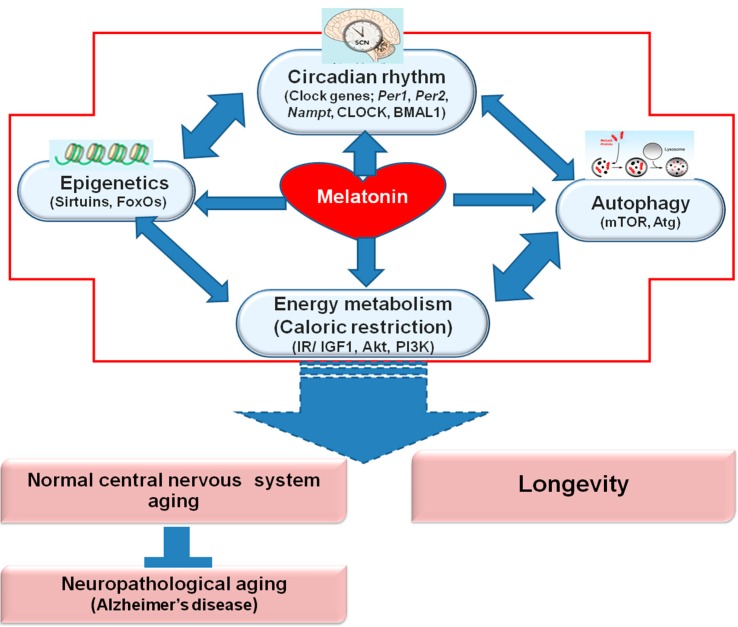Figure 1.
Mechanism of melatonin in controlling normal nervous system aging, neuropathological aging and longevity. The multiple mechanisms of action of melatonin include the following: 1. regulating the circadian rhythm, including several clock genes (Per1, Per2, Nampt, CLOCK, and BMAL1); 2. epigenetics, including sirtuins and FoxOs (forkhead box O); and 3. autophagy, including mTOR (mammalian target of rapamycin) and Atg (autophagy-related proteins). Melatonin regulates several molecules and signaling pathways that sense and influence energy metabolism, including insulin/IGF1, Akt (protein kinase B), and PI3K (phosphoinositide 3 kinase). These pathways regulate normal nervous system aging. Age-related neuronal energy deficits contribute to the pathogenesis of several neurodegenerative disorders, such as Alzheimer’s disease and Parkinson’s disease. The anti-aging properties of melatonin regulate energy metabolism, leading to longevity.

